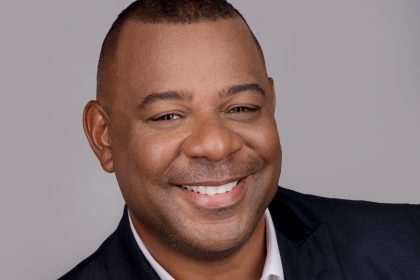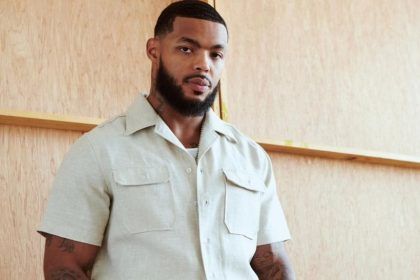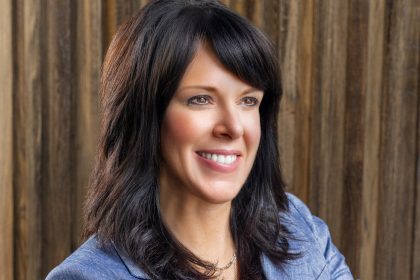Cartier Niko Goodrum’s journey extends far beyond the baseball diamond. The Atlanta native, whose MLB career has included stints with the Minnesota Twins, Detroit Tigers, Houston Astros—where he earned a World Series ring—and most recently the Boston Red Sox and KBO Lotte Giants, has consistently demonstrated that his true passion lies in community service. Currently a free agent, Goodrum has used his platform to transform communities, most notably in Flint, Michigan, where he personally delivered thousands of cases of water to residents during the ongoing water crisis.
In 2020, he founded doGOODthings, Inc., a non-profit organization that evolved from his philanthropic work. His vision encompasses more than just baseball—the foundation aims to create comprehensive youth development programs that combine athletic training with essential life skills. In this candid conversation with Rolling Out’s Munson Steed, Goodrum discusses his philanthropic journey, the importance of father-son relationships, and his mission to make baseball more accessible to Black youth while preparing them for success both on and off the field.
[Editor’s note: This is a truncated transcription of a longer video interview. Please see the video for the extended version. Some errors may occur.]
When did you decide to start your foundation and work in the community?
The whole thought started in my mom’s house. She was watching the Lifetime Movie Network about Flint—this was in 2018, before spring training. When I got to Michigan, I started sending truckloads of water to Flint. Cars wrapped around for hours outside churches just to get water and food because the water wasn’t even good enough to cook food. I did that from 2018 through 2021 during my time with Detroit. When fans started sending me money to help, I knew I needed to start a foundation to ensure transparency. During the pandemic in 2020, we used that time to set everything up.
What are the rewards for athletes who get involved in community work?
My dad always told me to be more than just entertainment. In baseball, we play every single day, so you need something to turn your attention to and refocus. For me, that was the community. Growing up, my family always believed, “What’s yours is mine.” For people who don’t watch baseball or don’t know who you are, making a difference in the community is about more than hitting a home run. It’s about helping families eat and making an impact that goes beyond the game.
As a father now, what’s it like to still lean on your dad for wisdom?
I call my dad every day because I don’t know everything. You have to seek wisdom. My dad always told me he was still learning from his dad, even after he passed away. I have two girls, and they need their dad just as much. Daughters need their dads to be active and present because we’re the first men they see. My relationship with my dad has been close from a young age, and it’s been such a blessing.
Following in the footsteps of legends like Satchel Paige and Hank Aaron in an industry where you’re almost an anomaly, what would you share about making a difference?
When you show up to spring training or the locker room, and no one looks like you, it’s disheartening. That’s been the reality since I was a kid—I was often the only Black player on the team. Now, kids face even more barriers—parents can’t afford it. It costs $4,000 to be seen by scouts through travel ball teams. Families with limited resources simply can’t do it.
Our foundation is working to change that. We want to build a facility to provide proper training and resources. This isn’t just about baseball—it’s about giving kids a pathway to education, whether they become a surgeon, lawyer, or astronaut. Only 2% of players make it to the major leagues, so sports can’t be their only plan. Through athletics, we want to get kids into college and help them achieve their dreams, whatever they may be.
How do you train your mind to focus when facing a pitch?
Nothing else matters in that moment. When that baseball is coming at you, it’s happening so fast that nothing else matters in that short period of time. If I’m thinking about an argument I had, or what I’m going to do the next day, my chances of making contact drop significantly. Being able to quiet your mind and silence your thoughts is a process you have to master in that moment. When big moments happen, we don’t hear anything. It’s taken me 16 years to figure it out.
What have you learned about staying in shape mentally and physically in every season?
Physically, you’ve got to know yourself. Be smart and wise about your limits and what you’re trying to achieve. Start small. If you haven’t run in two years, start with a walk. Mentally, it’s the same thing. Start small and build. Then, as you build endurance physically, your mental strength follows. Physical and mental endurance go hand in hand.
You’re staying in the game—a young man’s game. Is it the love for the game now?
I’m 32. The love of the game started when I was young. Then, life happens, and other things start to mean more than the game. For me, family is everything. Eventually, you realize the game is a business. The love for the game changes. It shifts to helping others. I’ve been in the spotlight, and now it’s about who I can help while I’m still playing. This love shift didn’t happen overnight. Over the 16 years, I’ve learned that baseball isn’t everything. But now, I see how the love for the game can extend to helping the next generation.
How do you find people you can trust to give you a vision post-playing, especially when you’re still in the game?
First, there’s got to be a passion. You have to identify what you’re passionate about. If you don’t have a passion outside the sport you play, the transition is going to be tough. When the game is taken away—whether by an organization or injury—you’ll find yourself in a state of depression because you feel like that’s all you had.
You have to find your passion. Talk to people who’ve already made the transition. Ask them how they did it. If you’ve built a good circle—parents, agents, friends—you lean on them for guidance.
How should players prepare for life after baseball?
That passion needs to either help you earn money for your family or be something bigger than yourself, like a nonprofit. My foundation isn’t just about baseball. It’s about providing everything from tutoring and etiquette training to growing young boys into men and young girls into women.
At our facility, we want to teach skills in basketball, football, soccer, lacrosse—whatever they need—but also address emotional needs. If a boy has anger issues or a girl is dealing with bullying, we’re there to help. We want to create well-rounded individuals who are ready for life, not just sports.
It’s about creating a better society, not just the next athlete. Because when you’re done playing, no one cares about the home runs you hit. They care about whether you can help them meet their needs.














